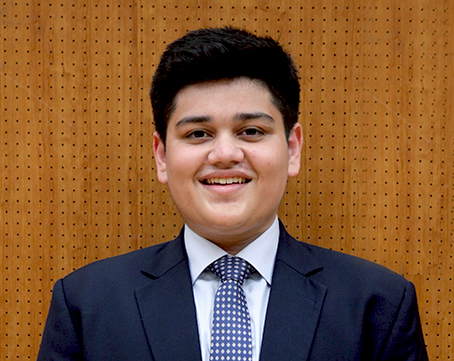
Secretary-General : Vansh Bhatia
“When the power of love overcomes the love of power, the world will know peace.”
- Jimi Hendrix
Dear delegates and MUN directors,
The duality of mankind has historically presented a pressing political paradox, one which has plagued the most influential, hegemonic powers of the world for centuries: the notion of protecting national solidarity versus that of promoting international collaboration.
The fundamental constructs which constitute human nature often prompt us to approach all circumstances from a binary outlook, but the reality of the situation is that the complexity of our world cannot be encompassed by a simplistic binary: black or white. When we look in between the black and white, we see a bit of grey. This is when we realise that these seemingly antithetical notions are not mutually exclusive, but are instead the building blocks to attaining multilateral integration and global synergy. That is the beauty of the grey area - when you find just the right balance between black and white, you are able to create something new, something profound, and something that can change the world.
We are in the midst of an epoch of global revolution. In a world where change is the only constant, humanity is taking massive leaps to break away from the paradigm of conventionality, and collaborate to reach soaring new heights. The latter half of the twentieth century has witnessed the rapid rise of neofunctionalist ideals, as countries are integrating multilaterally to synergise resources and engender holistic socio-economic development. One notable example is the formation of supranational organisations such as the European Union (EU), a remarkable manifestation of the Schuman Plan for the development of the European Coal and Steel Community (ECSC). The Schuman Plan formed the foundation of multilateral interdependence as we know it today, initially navigating the efficacy of regional integration in ensuring effective policy-making and intergovernmental harmony.
The construct of neofunctionalism has further manifested itself in the formation of supranational, multilateral trading blocs across the world, including but not limited to the Association of Southeast Asian Nations (ASEAN), the Southern Common Market (MERCOSUR) and the African Union (AU). Collaborating on a multitude of policy decisions and regulatory frameworks such as fiscal programmes, taxation schemes, wage legislation etc. these bodies reflect the value of synergy in today’s global landscape. In a world that is divided by borders, multilateral integration has effectively enabled seamless communication and transnational cooperation, thereby echoing the very sentiment which the United Nations was founded upon.
The 20th edition of DAIMUN celebrates this very spirit of community and fraternity, quintessentially embodying the core values enshrined in the United Nations charter: peace, justice, respect, human rights, tolerance and solidarity. We are discussing a diverse set of fascinating agenda, ranging from the question of protecting the rights of marginalised communities and differently abled groups, to the creation of preventive mechanisms to mitigate the weaponization of space territory. Can China’s unilateralism in the context of their hegemonic geopolitical control of the South China Sea have detrimental global implications? Can the ethnic apartheid in the Darfur region be resolved without multilateral diplomacy and foreign intervention? One thing is certain - These pervasive issues can only be solved with collective action from the global community.
Delegates, the time to act is now. The stage is set. The spotlight glimmers. Will you rise to the occasion?
Warm Regards,
Vansh Bhatia
Secretary-General
DAIMUN 2023